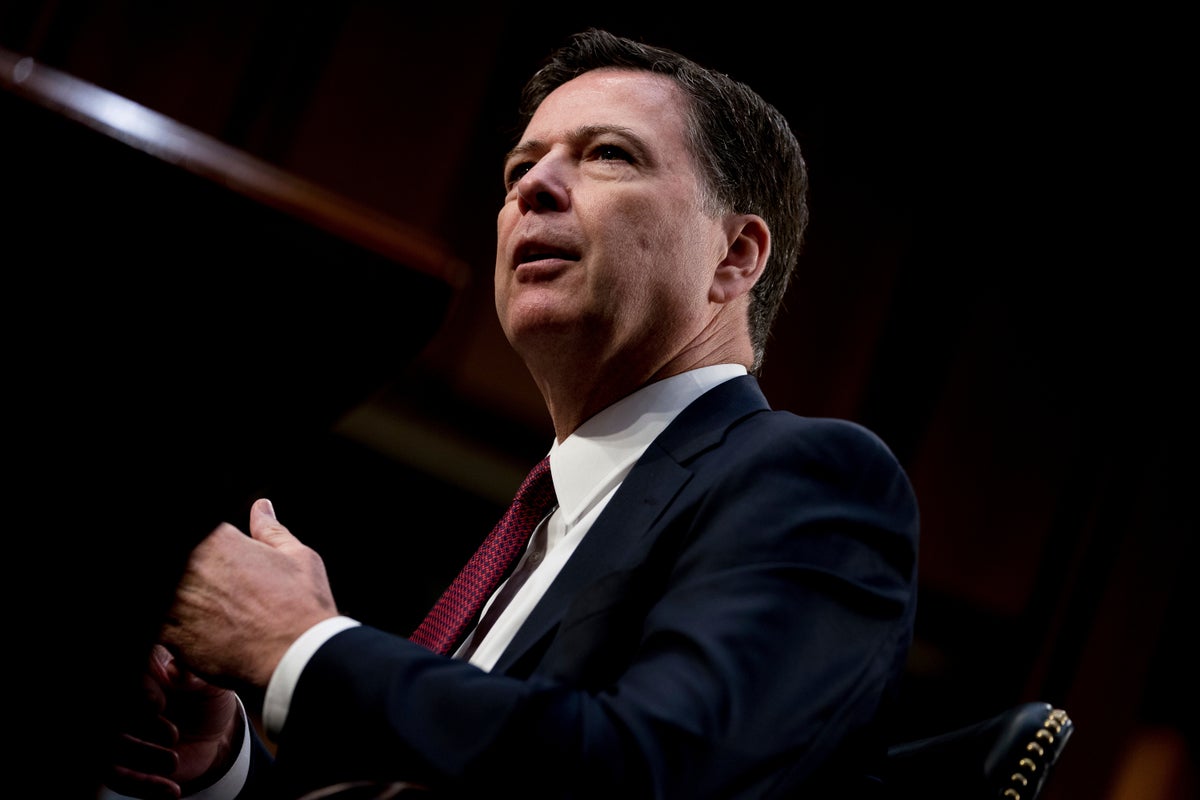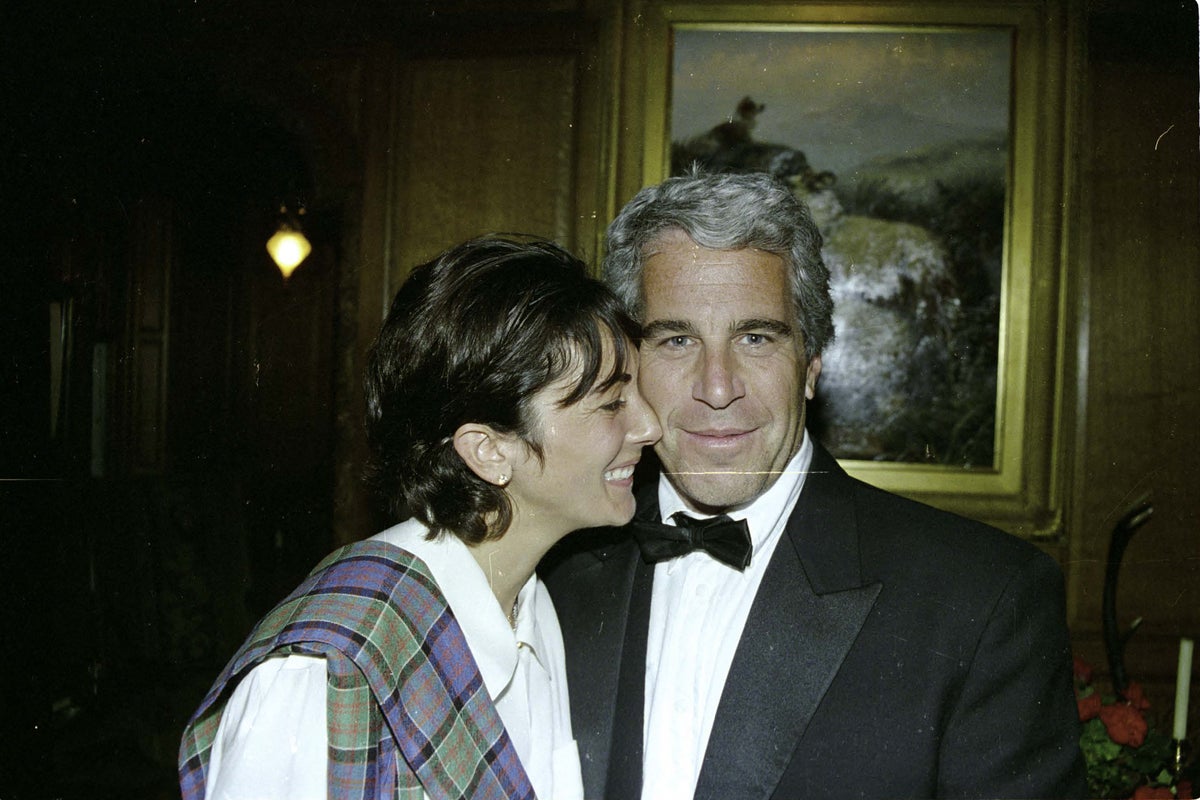Former FBI Director James Comey has asked a federal judge to throw out the Trump administration’s criminal case against him, calling it “vindictive” and an “egregious abuse of power”.
In a motion filed in federal court in Virginia on Monday, Comey’s lawyers accused the Department of Justice of giving into President Donald Trump’s “personal spite” and “animus” by illegally seeking to punish him for his years of criticism.
“The government has singled out Mr. Comey for prosecution because of his protected speech and because of President Trump’s personal animus,” the lawyers wrote.
“Such a vindictive and selective prosecution violates the First Amendment, the Due Process Clause, and equal protection principles.”
Anything less than dismissal with prejudice, they added, “would be insufficient in light of the government’s flagrant misconduct and the need to deter the government from bringing further unconstitutional prosecutions.”
In support of their motion, Comey’s lawyers attached a list of roughly 188 social media posts by Trump in which he railed against Comey as a “liar”, a “dirty cop”, and “one of the worst human beings this country has ever been exposed to.”

In a separate motion, the lawyers accused Trump’s federal prosecutor Lindsey Halligan of being improperly appointed to her post without Senate approval.
Federal prosecutors have charged Comey with obstruction and lying to Congress in 2020 during testimony over his role in the Trump-Russia investigation four years before.
But those charges only came after multiple prosecutors had resigned over their reported refusal to go after Comey, leading Trump — after publicly demanding that Comey be prosecuted — to finally replace them with his former personal lawyer Lindsey Halligan.
Halligan then submitted an indictment, signed by her and nobody else, which Comey’s lawyers say was highly unusual. A grand jury in Virginia rejected her first charge, approving the other two with a majority of 14 to 23.
Comey has pleaded not guilty to both charges.
“President Trump ordered the Department of Justice to prosecute Mr. Comey because of personal spite and because Mr. Comey has frequently criticized the President for his conduct in office,” Comey’s lawyers wrote on Monday.
“When no career prosecutor would carry out those orders, the President publicly forced the interim U.S. Attorney to resign and directed the Attorney General to effectuate ‘justice’ against Mr. Comey.
“He then installed a White House aide with no prosecutorial experience as interim U.S. Attorney…. days before the relevant statute of limitations was set to expire.”

The motion acknowledges that it’s rare for federal charges to be dismissed as malicious, because the DOJ has previously “maintained the highest standard of ethics”.
But here, the motion says, there is “ample” evidence — “much of which comes directly from government officials’ own public statements and admissions” — to prove the case.
It notes that Trump first called for Comey to be prosecuted as early as April 2018, and cites a 2022 claim by Trump’s former chief of staff Mark Kelly that he had wanted to use the IRS and FBI to target Comey during his first term.
Comey’s lawyers also mentioned the DOJ’s firing of Comey’s daughter Maurene Comey this July, arguing that it “provides unequivocal objective evidence of personal animus that has no place in the exercise of government power.”
But the centerpiece of their argument is Trump’s now-infamous Truth Social post last month demanding that his attorney general Pam Bondi prosecute Comey and other perceived enemies, which was reportedly meant to be a private message.
“There is a GREAT CASE, and many lawyers, and legal pundits, say so. Lindsey Halligan is a really good lawyer, and likes you, a lot,” Trump wrote.
“We can’t delay any longer, it’s killing our reputation and credibility. They impeached me twice, and indicted me (5 times!), OVER NOTHING. JUSTICE MUST BE SERVED, NOW!!!”
This message, Comey’s lawyers wrote, “is a direct admission that the decision to prosecute Mr. Comey was not based on a good-faith application of law to facts… [but] on President Trump’s years-long personal antipathy.”
The DOJ’s indictment focuses on Comey’s highly cautious testimony to the Senate in 2020, when he told Republican Ted Cruz that he stood by his previous testimony in 2017 — while refusing to comment on Cruz’s other questions.
In the 2017 hearing, he said he had never authorized anyone at the FBI to leak to the press about the Trump investigation or his 2016 probe into Hilary Clinton’s emails. Yet the indictment alleges that in fact he had authorized “PERSON 3” to release information anonymously.
In their Monday motion, Comey’s lawyers said that “PERSON 3” was an old friend of Comey’s named Daniel Richman, a former federal prosecutor turned Columbia Law School professor who was also an official adviser to the FBI.
Comey has previously said in Senate testimony that he did ask a friend, later identified as Richman, to serve as an anonymous source for The New York Times about his interactions with Trump at the start of his first term.
It’s unclear whether Richman ever disclosed any evidence about the specific matters Comey was quizzed about in 2017, nor whether Richman would count as someone “at the FBI”.




